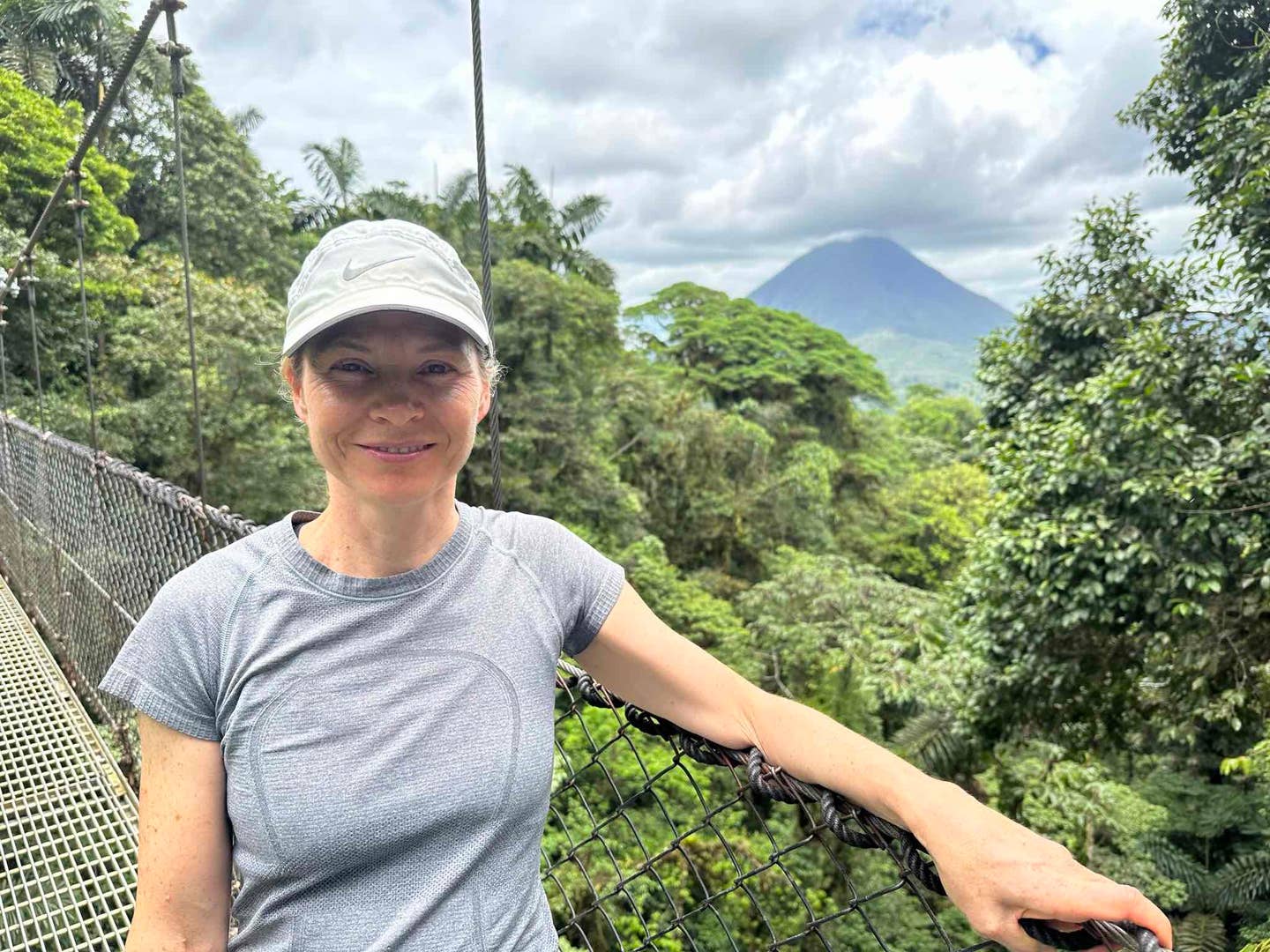By Drew Harrisberg,
Exercise physiologist and diabetes educator Drew Harrisberg has been amazed at the improvements to his health within a month of going from keto to plant-based. We’ll continue to check in with Drew throughout his WFPB journey, so stay tuned here for updates.
If you’re reading this story in the hope of seeing drastic before and after photos, I’m afraid you’re going to be disappointed. However, if I could wear my body inside-out, I think you’d find my transformation pretty damn impressive (if I say so myself)! My story is about how a drastic change in my nutritional approach—going from keto to plant-based—allowed me to regain control of my insulin and blood sugar levels and, ultimately, to thrive again.
Health-Conscious History
I’ll start by introducing myself. My name is Drew Harrisberg. I’m an exercise physiologist, diabetes educator, sport scientist, and most importantly, I’m a happy and healthy guy thriving with type 1 diabetes. I’ve not only accepted living with it; I’ve learned to love it and manage it so that it doesn’t manage me.
The diagnosis came unexpectedly when I was 22 years old. It was a moment that changed my life forever. I remember making a conscious decision that I would become an expert in managing my disease and that I would share everything I discovered with the world. So the journey began. I went back to university and completed my second degree to add to my exercise physiology title, this time in diabetes education and management.
Since being diagnosed with diabetes, my life has been one big self-experiment. The cool thing is, I've been the subject and the lead scientist. I’ve made countless mistakes and discovered just as many solutions.
My first nutritional triumph came very soon after my diagnosis, when I transitioned from the conventional food pyramid to a mostly plant-based, low carb (50-150 grams per day), Paleo approach. About 70 percent of my diet consisted of low-carb, non-starchy vegetables; nuts; and seeds. Animal foods (meat, fish, eggs, and dairy) made up only about 30 percent of my diet, but I had some animal products with every meal. I ate very minimal fruit (just berries) and almost no grains, legumes, or nightshades. I followed this way of eating for the first seven years of my diabetes journey, and it did help me to achieve some great results: My insulin requirements dropped significantly, my blood sugar levels were tightly controlled, and some physical ailments, such as chronic sinusitis and shin splints, disappeared and never came back. My overall health improved.
Recently, my desire for personal development led me down an entirely different road. All the buzz about the ketogenic diet had me interested, so I decided to try it out in the hope that I could further reduce my insulin requirements and achieve even better blood sugar control.
One Step Forward, 10 Steps Back
Initially, that’s exactly what happened. After two months on a ketogenic diet, I was lean, fit, had great focus and concentration, could go long hours without eating, had stable blood sugar levels, and had lower insulin requirements. At this point, it seemed like keto was a magic bullet, and I was a huge proponent of this way of eating. But after two months, everything took a horrible turn for the worse. I became the most insulin resistant I have ever been. I lost all metabolic flexibility. Sure, I was a very efficient fat- and ketone-burner, but it was at the expense of the ability to tolerate any glucose whatsoever. Not only could I no longer eat the smallest amount of carbs without a massive blood sugar spike but also I was resistant to the insulin that was meant to bring my levels back into the normal range. It would have been easy to blame my high blood sugar levels on the tiny amounts of carbs I was eating, but that would have been a mistake. Here’s why: Even if I didn’t eat anything and my liver dumped glucose into my bloodstream, I couldn’t fix my high blood sugar levels, because I was resistant to the insulin that I was injecting. It felt like I was on my way to developing type 2 diabetes (type 1 is more than enough, thank you). It was a very frightening reality and a huge wake-up call.
I came to an eye-opening realization: The ketogenic diet is a short-term, Band-Aid solution. By removing carbs from the diet, you’re simply removing a trigger that leads to symptoms (hyperglycemia) without addressing the actual cause. Then when you add carbs back in, your body can’t tolerate them, which makes it seem like carbs are “bad” for you, but really they’re the victim of something else. After spending hours and hours down a rabbit hole of research, it turns out that high amounts of intramyocellular fat accumulation cause the cell to become dysfunctional, leading to insulin resistance and impaired glucose tolerance. I’ve seen numerous keto advocates demonizing carbs because they personally can’t tolerate them. Once again, it may seem like the banana caused your blood sugar to go up, but what it really did was trigger a symptom that was caused by a much deeper problem. After becoming aware that the large amounts of saturated fat I was eating (from eggs, chicken, meat, and full-fat dairy, and coconut oil) was making me insulin resistant, I knew I had to make a change.
Getting to the Root of the Problem
Having made the connection between poor health outcomes and saturated fats, I was hesitant to return to a Paleo diet. I realized that perhaps when I’d previously done well on Paleo, I was just “getting away with it” because of the healthy plant foods that I was eating. Were my positive results on Paleo due to the 30 percent of my diet that was animal products or the 70 percent that was plants? I suspected it was the latter. The only way to truly find out was to start a strictly plant-based approach and track the changes.
So, I decided to embark on a journey to see if removing those foods altogether and eating more carb-rich plant foods would reverse the metabolic damage I had caused. I immediately embarked on a strictly whole-food-plant-based journey.
I dropped my fat intake from 75 percent of daily energy to less than 20 percent. I removed all animal foods and oils. Rather, I focused on getting healthy fats from avocados, nuts, and seeds. I also added whole grains and legumes back into my diet (both of which I hadn’t eaten in nearly seven years since following a paleo approach) and an abundance of all types of fruit. Within 48 hours my insulin sensitivity started to return to normal. Within 1 week my carbohydrate intake was the highest it had been since being diagnosed with diabetes, and my insulin intake was reducing day by day.
As I write this story, I’ve been strictly plant-based for 30 days and the results have been astonishing. I’ve achieved my best ever insulin-to-carb ratio, and it feels like I’ve regained control of my health. What started as a plant-based journey toward personal development and health has turned into something so much bigger. The positive impact I’m having on myself, the people around me, the environment, and animals gives me so much fulfillment and joy. I cannot wait to see where this journey takes me over the long-term.
Ready to get started? Check out Forks Meal Planner, FOK’s easy weekly meal-planning tool to keep you on a healthy plant-based path. To learn more about a whole-food, plant-based diet, visit our Plant-Based Primer.

Related News
Try Our Top-RatedMeal Planner Free

Forks Meal Planner takes the hard work out of making nutritious meals the whole family will enjoy.
SAVE $200 ON OUR ULTIMATE COURSE

Join our best-selling course at a new lower price!



